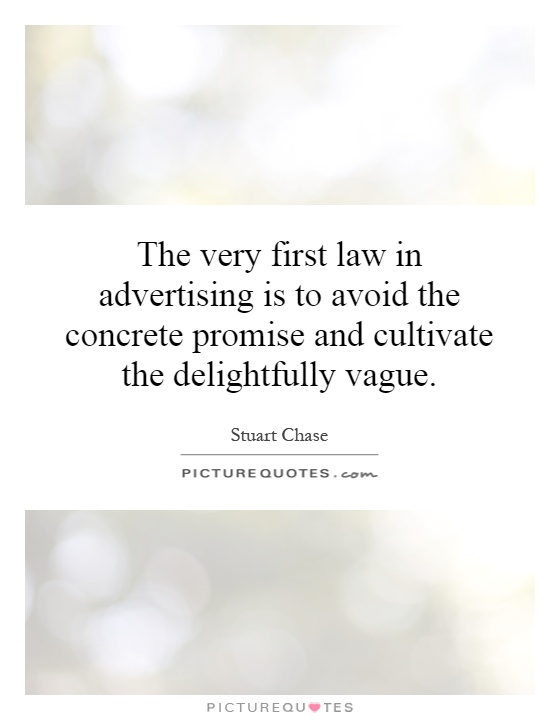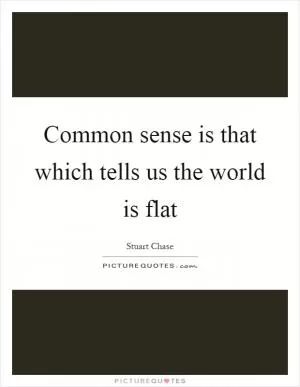The very first law in advertising is to avoid the concrete promise and cultivate the delightfully vague

The very first law in advertising is to avoid the concrete promise and cultivate the delightfully vague
Stuart Chase, a renowned American economist and social theorist, once famously said, "The very first law in advertising is to avoid the concrete promise and cultivate the delightfully vague." This statement has become a guiding principle for marketers and advertisers around the world, as they strive to create compelling and persuasive campaigns that capture the attention of consumers.Chase's words highlight the importance of ambiguity and suggestion in advertising. By avoiding concrete promises and instead focusing on vague, yet enticing language, advertisers are able to pique the curiosity of their audience and create a sense of intrigue. This approach allows for a more open-ended interpretation of the message, which can lead to a deeper emotional connection with the brand or product being promoted.
One of the key reasons why cultivating the delightfully vague is so effective in advertising is because it taps into the power of imagination. When consumers are presented with a vague or ambiguous message, they are forced to fill in the blanks with their own thoughts and ideas. This not only engages them on a more personal level, but also allows for a more memorable and impactful advertising experience.
Furthermore, by avoiding concrete promises, advertisers are able to create a sense of mystery and allure around their product or service. This can help to build anticipation and excitement, as consumers are left wondering about the potential benefits and advantages of what is being offered. In a world where consumers are constantly bombarded with advertising messages, standing out from the crowd and capturing attention is essential for success.












 Friendship Quotes
Friendship Quotes Love Quotes
Love Quotes Life Quotes
Life Quotes Funny Quotes
Funny Quotes Motivational Quotes
Motivational Quotes Inspirational Quotes
Inspirational Quotes